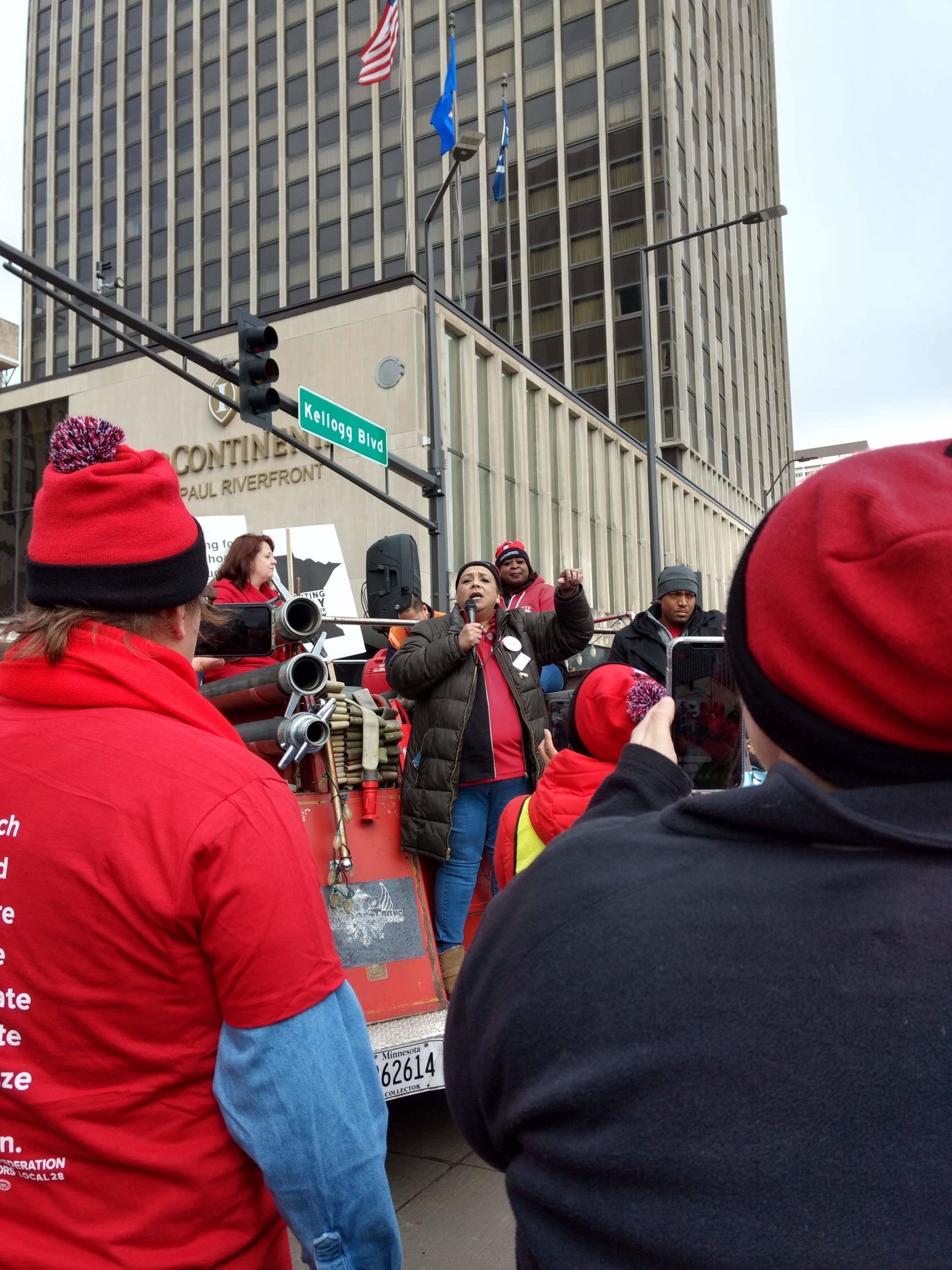
St. Paul 2020 Strike Photos, Set 1, Erica Schatzlein Collection
Photo Gallery
A gallery of photos to explore.

A gallery of photos to explore.
If the 1960’s were known as the era of vigorous student militancy in most sectors of American education, the 1970’s may well go down in history as the decade of the angry teacher.
Designed for both high school and college classrooms, History Matters helps students actively interpret evidence about the lives of ordinary Americans. It contains descriptions of and links to more than 1000 websites and first-person primary source documents, guides for analyzing historical evidence, classroom activities, and…
The Battle of Homestead Foundation (BHF) is a diverse organization of citizens, workers, educators and historians. Our purpose is to memorialize the dramatic labor conflict of the 1892 Battle of Homestead and clarify the consequences that remain with us today. Inspired by that event, we promote a people’s history, empower today’s workforce and build strategies for the future of work. The Foundation is a 501(c)(3) tax-exempt nonprofit organization.
Created in partnership with Education Development Center, Zoom In features 18 skill-focused, document-rich lessons on social history topics that address every era of U.S. history. These interactive inquiries engage students in reading documents closely, gathering evidence, and writing an argumentative or explanatory essay. Each lesson…
Though it’s a relatively recent field of study, women’s history is inscribed across all of the Harvard Library holdings gathered since 1638. By examining those holdings afresh and querying them in a new and feminist light, the curators of the Women Working collection have aggregated…
This project assembles the most extensive online collection of materials about labor history for this, or any other, region. Here you will find detailed information and primary sources about key historical events, including the Seattle General Strike of 1919, the unemployed movements and labor crusades…
The repeated argument I hear from people who are opposed to Oklahoma teachers walking out tomorrow is “we knew what we were doing when we signed up for this.” You’re right. We did. We signed up for the hardest job in the world and putting our kids first. Here’s a poem about it.
When Teachers Mobilize Oral Histories
This site brings together information about the history and ongoing influence of newspapers and periodicals published by unions, labor councils, and radical organizations in the Pacific Northwest. Labor newspapers have been a critical part of American labor movements since the early 19th century and an…